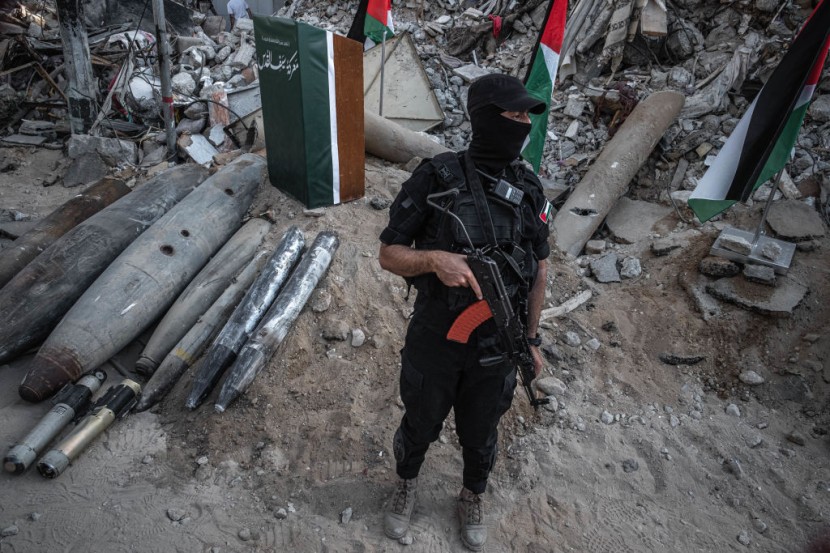
The Gaza Strip in Palestine has effectively become an open-air jail, with people's movements severely limited and regulated, due to the influence of Israel's military. To add to the confusion, Israel is now sending killer robots to patrol the border.
Thick barriers, a naval blockade, drones, machine gun turrets, and armed soldiers protect Gaza's border with Israel. Adding to these are Jaguars, tank-like robots armed with 7.62-millimeter machine guns, which are now patrolling the heavily secured border.
The Jaguar has already been spotted near the Palestinian border where it will be used to disperse crowds. It is also equipped to shoot down armed militants attempting to enter or fire missiles into Israel. According to an Israeli militar press release, the Jaguar robot is semi-autonomous, which means it can guide itself to a target and identify problems along the route.
Israel's semi-autonomous robots
However, in most cases, a human operator will instruct the robot to fire its machine gun - or, if it has been corrupted, to self-destruct. While those human operators must use a point-and-shoot interface to pull the trigger, the Jaguar's software can automatically change its aim to better target whatever the soldier is instructing it to fire at.
While the Jaguar's deployment may achieve its claimed purpose of keeping more Israeli soldiers out of harm's way, the Daily Beast points out that the robots are likely to exacerbate tensions along the Gaza border.
Israel recently announced that it will relax trading and fishing restrictions in the Gaza Strip, which were imposed during 11 days of conflict with the Palestinian enclave's Hamas leadership last month. With the help of Egypt, Israel maintains tight control over Gaza's borders. During the last month's fighting, Israel tightened its restrictions and suspended Gaza exports. It also restricted raw material importation and reduced the fishing area available to Palestinians.
With the ceasefire imposed by Egypt mostly holding, Israel permitted a limited reopening of commercial exports from Gaza on Monday. Hamas, on the other hand, wanted a broader relaxation of restrictions and hinted at the prospect of restarting hostilities, Reuters via MSN reported.
Due to Israeli limitations on raw materials imports, notably carbon dioxide gas, at least one factory in the Strip, Pepsi Gaza, closed. Coordination of Government Activities in Territories, the agency that oversees civilian activities in the area, did not specify which raw commodities will be permitted into the country.
Last week, Egypt and the UN stepped up mediation after incendiary balloons fired from Gaza triggered retaliatory Israeli air attacks on Hamas targets, putting the fragile ceasefire in jeopardy. Gaza militants fired rockets at Israeli cities and Israel conduct airstrikes across the coastal enclave last month. At least 250 Palestinians and 13 Israeli were killed.
Tensions between Hamas and Israel may re-escalate
Israel has permitted Palestinians stranded in Jordan to return home through the Erez border, according to the Palestinian Authority's (PA) General Authority for Civil Affairs in Gaza. It also allowed for the return of inbound and outbound mail to Gaza, as well as the export of agricultural commodities and sewing industry items. This is in response to a ban that went into force on May 11.
In Gaza City on June 22, Hamas met with Tor Wennesland, the UN special coordinator for the Middle East peace process, and his delegation to further UN efforts to stabilize the cease-fire and lift the Gaza barrier. However, the conference concluded on a bad note, with tensions mounting once more.
The discussion with the UN was unfavorable, according to Yahya al-Sinwar, the Gaza Strip's Hamas head, who warned Israel about the "consequences of maintaining the barrier on the coastal enclave in place and blackmailing the resistance and the Palestinian people." The Hamas leadership released a statement warning Israel against slow steps in removing the closure and failing to commit to the previously agreed-upon understandings, and delaying the reconstruction work, as per Al-Monitor.
Related Article: Israel Launches Airstrikes on Gaza Strip 3 Weeks After a Cease-Fire Halted 11 Days of Fighting
@YouTube








